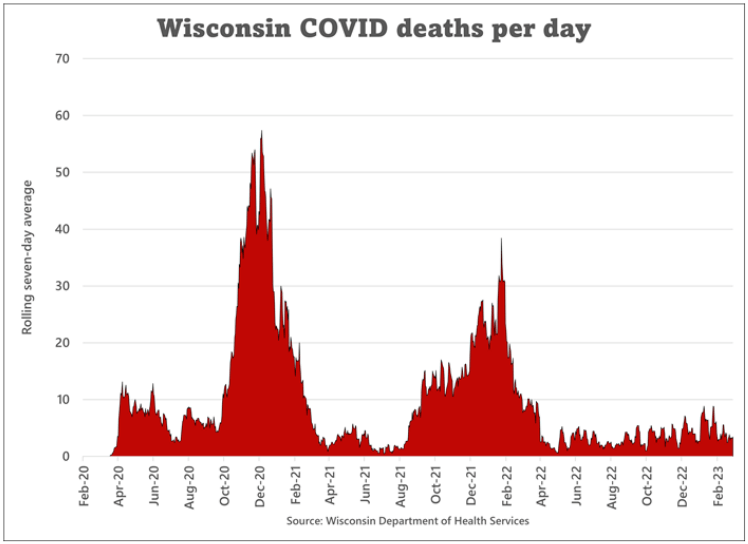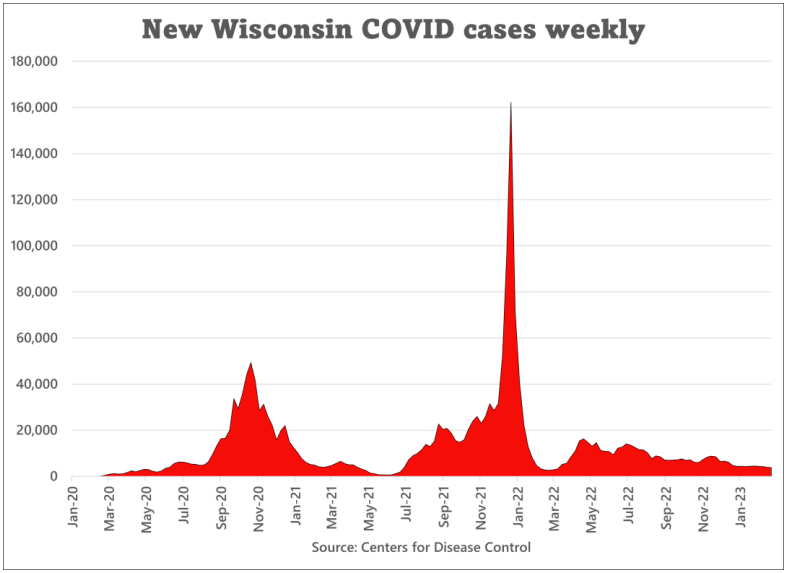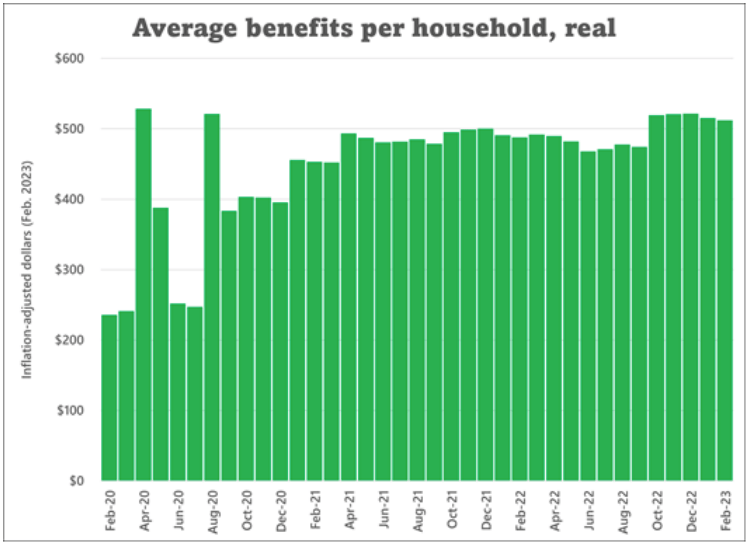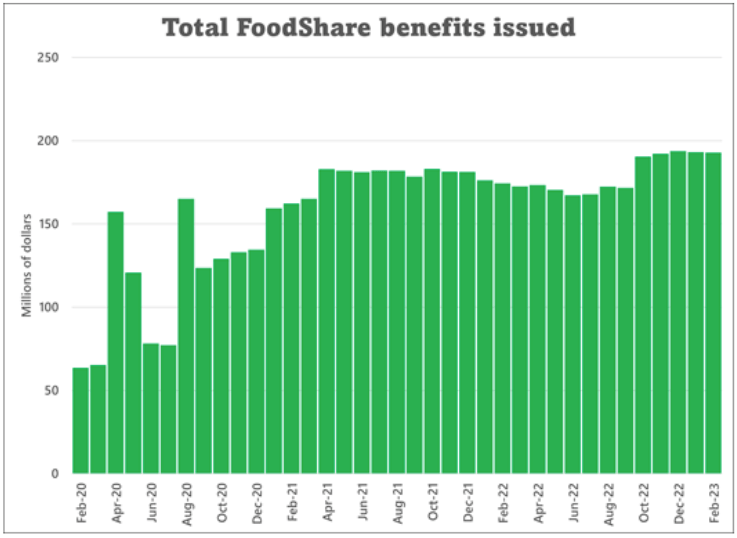Wisconsin FoodShare increasingly detached from need

It’s been over three years since the start of the pandemic, 28 months since the peak of Wisconsin COVID deaths, about a year since deaths dropped down to a mere fraction of what they once were, and more than six months since our president told everyone the pandemic was over.
And all along, spending on what we used to call food stamps, the federal Supplemental Nutrition Assistance Program (SNAP) now known as FoodShare in Wisconsin, has gone up faster than the digits on the scale of a cheese curd addict.
Our most voracious appetite, yet again, appears to be for government spending.
In February of this year alone, more than 376,000 Wisconsin households were issued $193 million in SNAP benefits — over three times the total amount issued in February 2020, just before the pandemic formally began. Average issuances per household are two and a half times what they were three years ago and up 10% just since President Biden’s pronouncement.
The trend is just now starting to turn downward because Congress has finally ended so-called “emergency” allotments and waivers that allowed many Americans to get more federal money for longer periods of time with fewer requirements. But rarely has there been starker evidence of Thomas Jefferson’s old adage from 1788 that “the natural progress of things is for liberty to yield and government to gain ground.”
SNAP, a federal program administered by the states, has been a lifesaver for many, needless to say. But there has been little correlation between the amount of hardship caused at various points by the pandemic and the ever-upward trajectory of government SNAP spending.
Weekly deaths in the Badger State, according to data from the Wisconsin Department of Health Services, peaked in late 2020 and then, to a slightly lesser extent, in late 2021 and early 2022.

Weekly cases in Wisconsin peaked in January 2022, according to the Centers for Disease Control:

The state’s unemployment rate, yet another measure, has hovered around 3% or even lower since late 2021:

FoodShare benefits, meanwhile, rose quickly when they were initially needed, then basically held steady as things got better through late summer of 2022 and then surged again.
The numbers of individuals and households on FoodShare peaked in the spring and summer of 2022, then decreased somewhat before turning back upward.

Average benefits levels per household, in the meantime, rose from $203 per month in February 2020 to $512 per month in February 2023. The chart below, adjusted for inflation, illustrates the dramatic change.

The chart for total issuance of FoodShare money in Wisconsin looks similar.

FoodShare is supposed to be a short-term safety net program. But redistributionists have used the pandemic as an excuse to grow government involvement in one of the most basic aspects of human life — how individuals feed themselves — in an upward trajectory detached from meaningful metrics on need or economics.
Benefits this month are going down, and there has, of course, been a reflexive paroxysm of hysteria in the media about Americans being pushed over a “hunger cliff.” Sounds heartless.
The truth is, as AEI Senior Fellow and Badger Institute Visiting Fellow Angela Rachidi has pointed out, even after benefit reductions “SNAP benefits remain almost 50 percent higher today than they were before the pandemic due to inflation adjustments and permanent benefit increases. … SNAP benefits remain at historically high levels.”
In 2019, she points out, a family of four could receive up to $642 per month in current dollars. Even without the emergency allotments that are going away, that family can now receive up to $939 per month.
She’s written cogently about data in some states already showing “no observable increase in food insecurity” after the end of emergency food allotments. She’s also examining whether the program is actually meeting its goal of fully funding a “healthy diet.”
“This is a program,” she told me this week, “that is actually making people sicker because of what recipients are purchasing with SNAP dollars.”
Some argue that, looking forward, SNAP benefits will remain flat now for the next 10 years. We’ll see.
Government, as Jefferson knew way back in 1788, relentlessly gains ground. You don’t have to look back 235 years to know that. Three will do.
Mike Nichols is the President of the Badger Institute; Patrick McIlheran is its Policy Director. Permission to reprint is granted as long as the authors and Badger Institute are properly cited.
Submit a comment
"*" indicates required fields




